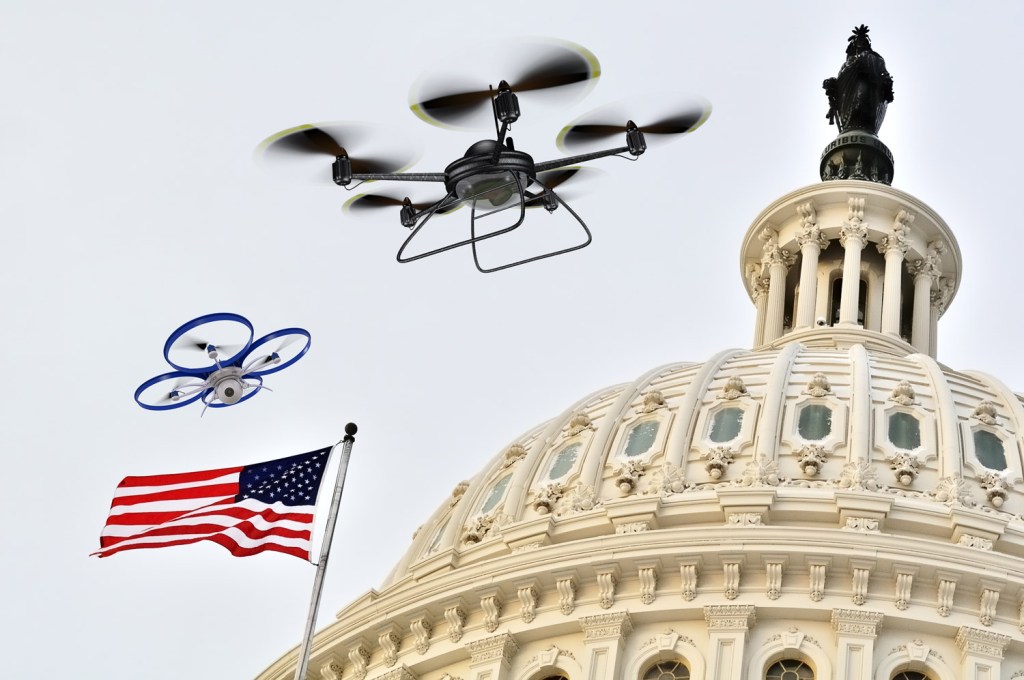Nick Sinai
More posts from Nick Sinai
Editor’s Note: Nick Sinai is a Walter Shorenstein Media and Democracy Fellow at Harvard Kennedy School’s Shorenstein Center on Media, Politics and Public Policy, a Venture Partner at Insight Venture Partners, and a former U.S. Deputy CTO at the White House.
The small drone crash at the White House earlier this week is just the latest in a series of reminders that when it comes to regulating new technology the government is woefully slow.
In the White House incident, the quadcopter was operated by an employee of a U.S. intelligence agency who had been drinking and lost control of his friend’s recreational drone.
The incident highlighted the fact that the FAA has yet to finalize its drone rules—and that this security breach may put pressure on the FAA to accelerate that process. I don’t think that is a good idea.
Rushing the regulatory process can result in rules that are burdensome or unfriendly to innovation. In our era of robust tech experimentation and testing, perhaps the greatest danger to innovation now is the age-old temptation to draw bright lines quickly and lay down knee-jerk rules before all the data are in.
Instead, the FAA could try “regulatory sandboxing” – where some initial constraints are relaxed, without sacrificing public safety, while the rules are still being made.
As an example, suppose the FAA stipulated that for the next few years, companies are free to fly drones, under 200 ft, in the state of Texas, for agricultural applications – as long as they exhibit common sense and due caution. The lessons from a limited use case would then inform the FAA’s ongoing rulemaking efforts – likely making the final rules simpler and better.
Regulatory agencies are deliberative for a reason. They are tasked with providing clear, enforceable rules that protect the American people while minimizing the burden and cost of those rules. They must get wide-ranging input, draft interim rules, seek additional feedback, and only then finalize a rule. The traditional approach to the process can take years.
By contrast, regulatory sandboxing would signal to the innovation community a sense of urgency about the industries of the future. We want robots, drones, Bitcoin, 3D printing, and other emerging industries to be built in the U.S. and exported around the world.
If we fail to innovate in the regulatory process, it will be at our own peril. Entrepreneurs and investment dollars are already flowing to countries that are moving faster to welcome drone use. Google is testing delivery drones in Australia, instead of the U.S.
Of course, there are a lot of important issues the FAA (and other federal agencies, like the FTC) need to sort through in its final rule-making on drones. Should the rules be the same for a Cessna-sized drone and a toy quadcopter? What happens when a drone causes a plane crash or injures an innocent bystander? What about the privacy implications of making it really easy to remotely spy on someone?
I’m confident these issues will be solved. Drones have the potential to provide tremendous benefits in search and rescue, law enforcement, movie-making, and dozens of applications we haven’t yet envisioned.
The Obama administration has made good progress on regulatory modernization, focusing on ensuring a strict cost-benefit test, revising or repealing outdated rules, and encouraging simplicity.
Building on that progress, the administration should do three things to further modernize the regulatory state:
- Articulate a principle of regulatory sandboxing. The White House should explicitly encourage both executive branch and independent agencies to consider sandboxing – especially in situations where there is a high cost of inaction. The administration could pick a few regulatory processes where experiments can run alongside a multi-year rule-making process, so that it can start to develop best practices for all regulatory agencies. And regulators need not be in the middle of a specific rule-making process – see for example the Consumer Financial Protection Bureau’s open call for pilot projectsand innovative regulatory approachesthat propose to yield significant consumer benefit.
- Improve digital services at regulatory agencies. Too often the user experience on regulatory agency websites feels like electronic band-aids on paper-based processes. What if submitting information to a regulator was as easy as hailing a car on Uber? What if regulations were easy to find, read, and understand? What if they were made machine-readable, so private sector apps could make it easy for businesses to discover (and comply with) the multitude of rules and regulations relevant to them? What if regulatory agencies built software hooks (APIs) for approved third-party apps, akin to the way consumers can submit their tax info to the IRS through TurboTax?
- Use transparency, disclosure, and open data as regulatory tools. From the EPA’s release of toxic chemicals data to the President’s net neutrality proposal, transparency can be an important regulatory tool. In the past, imagine an industrial company was required to keep actual logs of its air and water pollution, available for inspection by regulators. Or maybe it had a small army of lawyers preparing PDF submissions to its regulator – which eventually could become open data with some effort by the regulator. But in an Internet age, suppose that same company publishes its pollution data online in an open, common format, and in the same manner as other companies, so that the public, journalists, and Internet software can all easily find it. Giving regulated companies the option to openly publish rather than submit data could lower compliance burdens, better target enforcement efforts, and improve outcomes.
Smart, modern regulation means less cost and burden on regulated entities, as well as more innovation and investment, without sacrificing protections and safeguards. For these reasons, it should have bipartisan support.































Comment